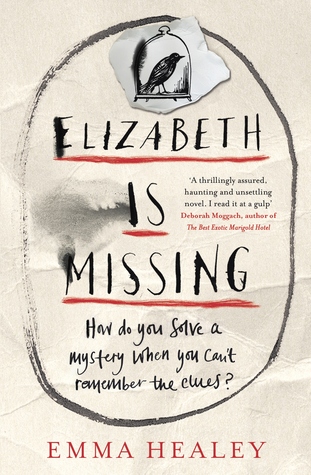 Elizabeth is Missing, Emma Healey
Elizabeth is Missing, Emma Healey
Elizabeth is Missing is a very interesting play on the unreliable narrator. Maud isn’t unreliable because she’s lying or because she has anything to hide – or not exactly. She’s unreliable because she can’t hold onto her memories or make coherent sense of the things around her. It might sound a bit like a weird mystery novel: you could imagine it like that, with Maud being really sane but being gaslighted by the people around her into believing she’s crazy, and that’s why none of them will listen to her when she talks about Elizabeth. But it’s more mundane than that, at least for one strand of the plot.
The real mystery is in Maud’s memories of her sister, Sukey, who went missing. There’s a great sense of time and place here, putting it so firmly in post-WWII Britain in the same way as those youthful memories are the most vivid for elderly people. There’s a lot of really great description, too, which is partly facilitated by the fact that Maud doesn’t remember things right. You can make the most mundane things fresh and new if they’re a surprise to the narrator; you can tilt the world slightly off-balance like that. Healey does pretty well with that, and with the narration; to me, she balances a lot of things very well.
For example, it’d be easy to show the impatient daughter who just won’t listen to her senile mother. But it’s not like that in real life for most people; it’s just that people are impatient, and will say a sharp thing or roll their eyes or utter something sotto voce just to help themselves cope with what’s going on. And we see Helen like that; we see her trying to be patient, trying to understand, and sometimes coming up short. If there’s a carer in the world, especially a family member, who doesn’t feel like that, well, get them sainted.
It’d also be easy to really mess up the narration, over-exaggerating the things Maud forgets, making her memory come and go too conveniently for the story, smoothing over the edges of the illness to give us a tidy ending. Healey doesn’t fall to that temptation, either.
I can see why you might find it tedious, too painful to read, too disjointed; I liked the slow unfurling of the mysteries, even when I expected the endings, and I laud Healey for writing an elderly heroine with patience and understanding.
Rating: 4/5

Leave a Reply